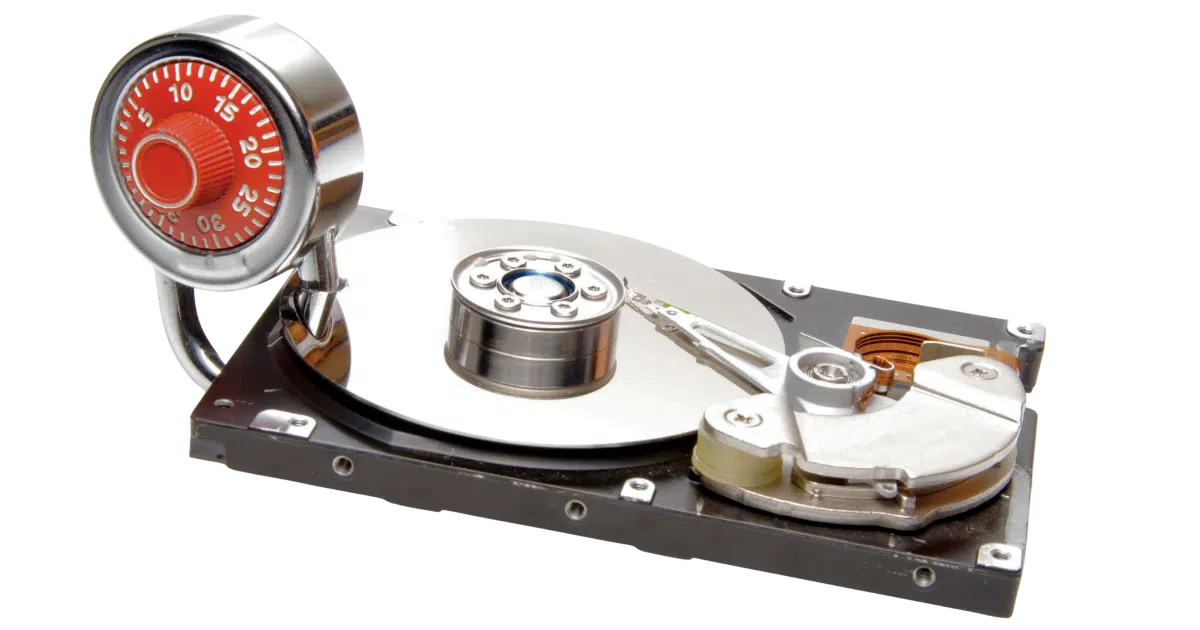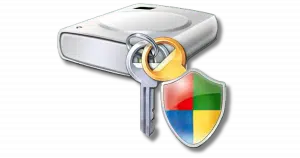Theoretically, but not practically.

Neither… and both.
Encryption in general, and whole-disk encryption specifically, has come a long way since it was first introduced many years ago. One of the most striking changes is its impact on performance.
I’ll put it this way: I would not let performance concerns hold you back from using whole-disk encryption.

Whole-disk encryption speed
Whole-disk encryption barely slows modern computers. It works imperceptibly when reading or writing files, and today’s fast CPUs and SSDs make any speed difference negligible. The real danger isn’t speed, it’s losing access. Always back up your encryption key, remember your password, and keep unencrypted backups of your files safe.
“Whole disk” is about the disk
Whole-disk encryption kicks in when things are written to or read from the disk. That means the apparent performance of your disk when encryption is at play is gauged by two things: the speed of the disk itself and the speed of your CPU.
Both have been getting significantly faster over time.
While not directly impacting encryption, the speed of disks, particularly SSDs, is impressive. In general, speed is the first thing we think of when it comes to read/write performance, whether your data is encrypted or not. You’re more likely to notice the impact of a slower drive than you are to notice whether the data is being encrypted.
CPU speeds, as well as the number of CPUs available on a PC, also directly influence the performance impact of most types of encryption1. Encryption is a very complex mathematical calculation. As complex as it may be, though, today’s CPUs are more than capable of handling the work without breaking a digital sweat.
In comparison to the amount of time required to get data on and off the disk — which is the same whether it’s encrypted or not — the additional time it takes to encrypt or decrypt that data along the way is amazingly short.
Help keep it going by becoming a Patron.
Encryption is about disk activity
There’s no specific time when whole-disk encryption has more or less impact. It happens as your computer reads and writes data to and from the encrypted disk.
Startup tends to be particularly disk-intensive; the operating system and all your startup applications and data are read from (or written to) the disk. But this is the same with or without encryption.
I also can’t say that it has “constant” effect on your performance, because it’s only about disk operations. If your computer is idling, there can be no impact because there’s no disk activity and no encryption being performed.
More important than speed
More important than any performance impact is your ability to access the data when (not if) something goes wrong. That means:
- Back up the key. Make absolutely certain your encryption key is backed up. Microsoft makes this easy if you’re using BitLocker and a Microsoft account; it offers to back up the information for you. Regardless, take the extra time to export the key and save it in a safe place. If you lose the ability to log in to your machine, your encrypted data is lost forever without the ability to recover that key2.
- Remember the password. If you use a password- or passphrase-based encryption tool like VeraCrypt, don’t lose the password. There’s no back door. Without the password, your data is inaccessible. Keep it in a safe place, such as your encrypted password vault (even if only to be able to remind yourself, or copy/paste when needed) or some other secure location.
- Keep backups safe. I strongly recommend backing up your encrypted drive in unencrypted form. Most backup programs do this automatically, as the encryption is just as transparent to them as it is to any other software running on your machine. That means you need to make sure that the backups themselves are stored securely.
Do this
Performance is not a reason to avoid modern whole-disk encryption offered by BitLocker or tools like VeraCrypt. Performance impact is minimal, if even noticeable at all.
If your data is sensitive or your computer is easily lost or stolen, the benefits of whole-disk encryption are worth considering for the privacy and security of your data.
Subscribe to Confident Computing! Less frustration and more confidence, solutions, answers, and tips in your inbox every week.
Podcast audio
Footnotes & References
1: Sometimes the encryption happens within the drive itself, which doesn’t impact your CPU at all.
2: Which is kinda the point of the encryption in the first place: someone unable to log in to your machine and not in possession of the recovery key shouldn’t be able to view your data.



“1: Article forthcoming; but to start, right-click on the drive in Windows File Explorer and then click on Manage BitLocker”
bit locker is also in the control panel. is there a reason you chose this method to access it?
Either way will work. Right-clicking in File Explorer might be a bit faster way of accessing it, but otherwise, both methods bring you to the same place.
More closely associated with the drive, I guess. Windows makes many of their interfaces available via many paths. Whatever you’re comfortable with.
I once used encryption on some sensitive files (taxes, wills, etc) on a portable drive as well as the main computer. Then I got a new computer, cloned everything on to it and much to my dismay I found out the hard way that I could no longer access those files, even with the proper keys. Because the hardware changed the files were locked on both the computer and portable drives. I got lucky and found an old drive that still had the files on them. Never again!
I travel a bit. If my encrypted computer is lost or stolen, could a clever hacker access the hard drive by removing it from my computer and installing it in another, or would the bios or other hardware issues still prevent access?
If the drive is encrypted, a hacker wouldn’t be able to access anything on it. All they would be able to do is reformat and install a fresh version of Windows as long as you are using strong encryption.
There have been very precise reports of big performance drops on SSDs, when using Vera Crypt whole disk encryption. This seems to be contingent on the model used. Individual users have reported it, and Vera Crypt has recognized the issue. Any take on that ?
First I’ve heard of it. It would be interesting to see if VeraCrypt has an explanation.
Here is one user’s testimony :
https://www.ghacks.net/2018/09/14/veracrypt-encryption-software-review/#comment-4390222
I have many links on this issue from Vera Crypt’s forum, but it seems to be down at the moment. So here is a single one, where the developer aknowledges the issue (the link does not work for me right now ; hoping it is just temporary) :
https://sourceforge.net/p/veracrypt/discussion/technical/thread/ead5ae6c/#2172
I was using Veracrypt for the first time recently. I tried using its feature to create a hidden drive (mistake) to backup some material related to a transition in my life. To create a hidden drive, one has to create an encrypted non-hidden drive first, and then create the hidden drive within it. I backed up a lot of material there. All but the last 30 days were backed up on a cloud service with 2 factor authentication. I just ran out of time and didn’t have a chance to do the second backup of the last 30 days.
Not knowing enough about it, I later wrote something to the encrypted non-hidden section. With that, everything on the hidden drive was corrupted. I now have found where Veracrypt says not to do that, but I didn’t know. I tried a number of tools to recover them, to no avail. So I did lose the last 30 days. Everything else I was able to find somewhere else.
I am since much more careful with Veracrypt
When you use a hidden volume in Veracrypt, the hidden volume is written to from the end moving towards the beginning of the Veracrypt file. If you save too much information in either volume, it will begin to overwrite the information on the other volume. You need to keep an eye on the amount of data you are writing to each volume.
Mark,
I just saw your reply about Veracrypt writing inner from the opposite direction as outer.
I do not think this is correct. I do believe that after you have created the inner, writing ANYTHING, even one byte to the outer, would corrupt the inner. See this from Veracrypt:
https://www.veracrypt.fr/en/Protection%20of%20Hidden%20Volumes.html
I tried a lot of ways to get back that inner drive, based on recommendations from that site, but nothing really worked. What did help me was that I had the material on the drive before I had copied it to the inner, so I was able to undelete that. The one thing I couldn’t get, I believe, I had forgot to copy to begin with.
I use Bitlocker on one of my PCs that has Windows Professional. Every now and then, the machine insists on me providing the unlock key rather than just letting me login. It’s not clear why this happens. Any ideas?
On the plus side it is a way of ensuring I still remember where to find my encryption key.
Having my key stored on OneDrive is a useful backup option (& I think it is optional) but for the really paranoid, this backup is likely to be vulnerable to a court order directing Microsoft to disclose the key.
Another point to note is that while your disk may be encrypted, this does not mean that any contents which are replicated to a cloud service are encrypted in the cloud service. I share OneDrive and a Dropbox accounts between 2 PCs (one with Bitlocker and the the other with no whole disk encryption). There are no issues with this arrangement, which means that the Bitlocker encryption on the one PC is not replicated to the cloud service.
David,
Maybe store the key in LastPass, so then it is protected from a court order.
Performance is minimal? Veracrypt slashes the performance of nvme SSDs by half, on smalest files even 15x. This is not minimal impact.
There are no more significant amount of writes to an encrypted drive than an unencrypted drive. The data passes through the filter of the encryption mechanism upon reading and writing data. That filter resides in RAM or possibly the swap file, but the encrypted data itself is written to the drive in the same way unencrypted data is. There is, however, writing at the time of the initial encryption as the entire contents of the drive are replaced with the encrypted data.
This has not been my experience.
On my BitLocker-encrypted systems, I see no slowdown in performance. On my Veracrypt-encrypted drives, I notice no drop in performance, but it takes forever (about 30 seconds, an eternity in computer time ;-), to log in to Veracrypt at startup.
At least VeraCrypt warns that this is normal behavior.